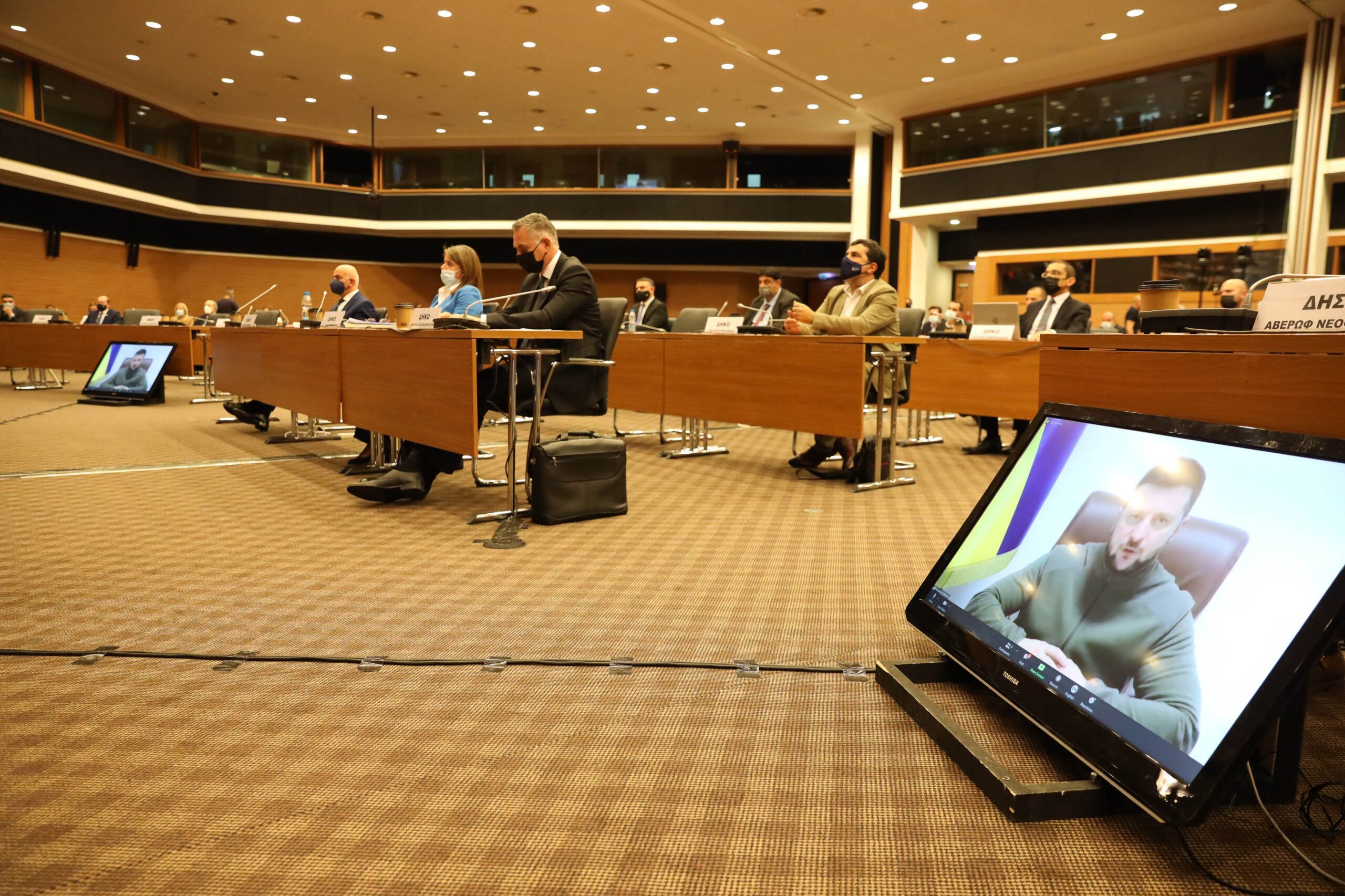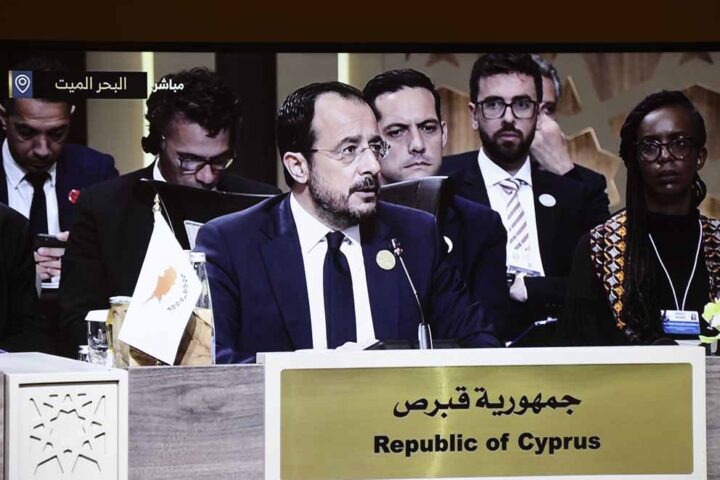Volodimir Zelensky’s appeal to the Cyprus parliament left a bitter aftertaste with the political establishment unhappy over his failure to mention the Turkish invasion, prompting President Nicos Anastasiades to criticise the speech.
What should have been a moment of solidarity — which Cyprus desperately yearns for from its European partners – turned sour.
After the extraordinary parliamentary session, the Cypriot leader said, “we are disturbed by the fact that there was no reference.”
Of course, being an excellent communicator, Zelensky should have found a way to appease concerns in Nicosia by saying that he shared the pain and the plight of the people ravaged by war and made refugees in their own country, perhaps mentioning that the violation of any other country’s sovereignty was abhorrent.
But he didn’t.
He could have taken it a step further and condemned Turkey’s fence-sitting and defiance of EU, US and western demands to impose sanctions on Russia, but he knew this would jeopardise any hopes of Ankara pushing for greater mediation in a geopolitical game that has changed drastically during the past two months.
House President Annita Demetriou’s address was, perhaps, more poignant.
She spoke after Zelensky’s address and referred to the Turkish invasion while also warning the Ukrainian leader that the issue of guarantors, as Kyiv now seeks, is an anachronistic system that is to blame for allowing Turkey to invade the island in 1974.
She also conveyed a stronger message, playing up the humanitarian side of the suffering of the Cypriot people, by mentioning the unprecedented aid sent to Ukraine and the easing of migration laws for Ukrainian refugees arriving on the island and those already stranded here who cannot return home.
Cyprus now has a golden opportunity to drive home the message to other EU and western powers that the pressure should be on Turkey and not on European states, from whom Zelensky has sought, in some cases, outlandish demands.
Perhaps, the National Guard does not have to surrender any of its Russian-made weaponry to Ukraine, not unless these are replaced by equally effective or far superior defence systems, and of course, at zero cost.
But shouldn’t Cyprus take sides in a conflict of outright violation of human rights and war crimes, uprooting of population, invasion and occupation of foreign lands, all of which are condemned by an abundance of UN Security Council resolutions that will surely multiply in the foreseeable future?
Let’s not forget that in earlier decades, Cyprus initially established brotherly relations with others in the Non-Aligned Movement and later maintained a strong stance of support for the Palestinian refugees.
This has since evolved into a newfound and strong relationship with Israel, cooperating in energy and other resource-sharing while building bridges with neighbouring countries.
But most of all, Cyprus is, at present, first and foremost, an equal member of the European Union, which has an efficient and powerful leader at the helm who has navigated firmly through an economic crisis, health disaster and the need to turn to a cleaner world.
Ursula von der Leyen is facing the greatest challenge of her political career and seems to be managing it quite well.
Words of disappointment should be conveyed to Zelensky.
But most of all, the head of the Commission must see and feel that Cyprus is firmly by her side and that this tiny island state will do whatever is needed.
Only then can we start to recall our demands for solidarity, equal treatment and be considered true partners in the EU of 27.










